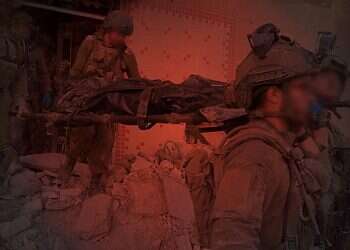Prime Minister Benjamin Netanyahu evokes very strong emotions in people, something he knows well. Crisscrossing the country in the week leading up to the March 2 elections – an unprecedented third vote in the span of one year – the spectrum of those emotions became very clear.
In a special interview with Israel Hayom, Netanyahu speaks about navigating the complex political Israeli reality, the seemingly never-ending election year, the security challenges the country faces, and his legal woes.
Q: Dr. Avishay Ben Haim, [Channel 13 News' analyst on the ultra-Orthodox community], says that you symbolize the struggle between 'First Israel,' the elite, and 'Second Israel,' which you represent. Can you relate to this theory?
"That really spoke to me, especially when I read it in Haaretz. Ravit Hecht wrote, in no uncertain terms, that Blue and White represents the attempt by 'First Israel' to perpetuate its status; that 'Mapai's [the left-wing party that ruled Israel until the 1970s] well-toned daughter' is trying to ensure that people of certain ethnicity won't even dream of being ministers. I cannot accept this separation of 'First Israel' and 'Second Israel'. The social periphery must be abolished, and if my rivals want to take me to task over that – let them."
Follow Israel Hayom on Facebook and Twitter
"But I think there is another reason. If I pushed a leftist agenda, all would be forgiven and everyone would embrace me regardless," he said, alluding to the various personal and political accusations leveled at him over the years. "But as I represent an agenda that pushes national pride rather than cowering, it juxtaposes fierce opposition with staunch support."
Q: You represent the moderate Right and you are very "First Israel.' You could easily be the Left's prime minister.
"Perhaps I am accused of debunking the mad theory that if we only relinquish land, we'll get peace in return. I adamantly stood against two American administrations that tried to push us back to the 1967 lines. Maybe I'm guilty of preventing that nightmare from coming true. They [Blue and White] haven't gotten over it yet, but they now represent themselves as pseudo-right-wing."
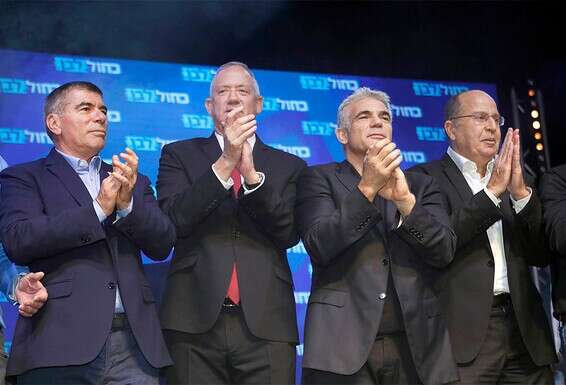
Q: You have worked with Blue and White leader Benny Gantz, Moshe Ya'alon, Yisrael Beytenu leader Avigdor Lieberman, and Yesh Atid leader Yair Lapid in the past. Why didn't they join a national unity government?
"Ask them. I asked Gantz, but he refused. I think we are within reach of victory. Gantz isn't – he's 11 seats short and he has no way of closing that gap without the support of the Joint Arab List. We are within reach of 61 seats. There's a great resurgence of the Likud," he asserted, referring to the minimal number of mandates necessary to form a coalition.
'War is the last resort'
Q: We have a strange relationship with the Gaza Strip. On the one hand, they fire rockets at us, and on the other hand, we assume responsibility for it, providing it with electricity, for example, regardless of the rocket fire.
"We are in a hostile environment, surrounded by radical Islam, a radical camp led by Iran. We are a villa in the jungle, which requires action on several fronts," Netanyahu explains.
"We strike Iranian forces in Syria and prevent them from entrenching there; we mount very specific counter-operations against Hezbollah, and we act in various theaters one of which is Gaza. The possibility of eliminating the threat in Gaza exists only through total war.
"Since they [the Palestinians] made the terrible mistake of handing Gaza over to radical Islam [in the 2006 Palestinian elections] we have launched three military campaigns there, two of which I led, and we inflicted severe damage.
"If we really want to replace the [Hamas] regime we have to seize control of Gaza. We may not have a choice. The surgical strikes and targeted killings we pursued recently and those we may pursue in the future may prove ineffective, so we might have no other choice but to conquer Gaza. But I see war as the last resort so I want to exhaust all other options first."
The prime minister is no stranger to bereavement, having lost friends as well as his older brother, Lt. Col. Yoni Netanyahu, in battle.
Yoni Netanyahu was killed during Operation Entebbe – the heroic 1976 IDF rescue mission of Israeli passengers held hostage by Palestinian terrorists at Entebbe Airport in Uganda.
"When I was 18, I held my friend and comrade, David Ben Hemo from Beersheba, who was killed by a mortar shell. I've seen the pain my family suffered when my brother Yoni was killed. I'm in no hurry to wage wars. In any case, this [a Gaza operation] will be a different campaign, with big surprises that were not available when [Blue and White MK and former IDF chief Gabby] Ashkenazi, Ya'alon, and Gantz served as chiefs of staff. There are other plans in the works, but I can't elaborate on that," he said.
Q: What's your pragmatic outlook for the Gaza Strip? What is the best we can hope for?
"Just deterrence and the understanding that certain things must be prevented. But if we deny them electricity, the level of pollution in their sewage system will increase – and epidemics know no borders, as we now see with the coronavirus.
"Creating a situation where Palestinian sewage reaches Ashkelon because they have no electricity would be a serious mistake. Therefore, we find the combination. If we can bring peace through a combination of basic deterrence and humanitarian measures – great, but if we can't, we'll have to take action.
"I have no intention of letting the situation in southern Israel stand. We may have almost no injuries, but they are paying a steep emotional price, especially the youth and children who live in anxiety because of the Color Red [rocket alert]. My heart goes out to them. But before taking a step like declaring war, I have to try to exhaust all other measures."
Q: And the best-case scenario for the Strip?
"A long-term ceasefire with the ability to neutralize Hamas' capacity to accumulate weapons while ensuring reasonable treatment of the population. We're talking about 2 million people who are being held hostage by Hamas."
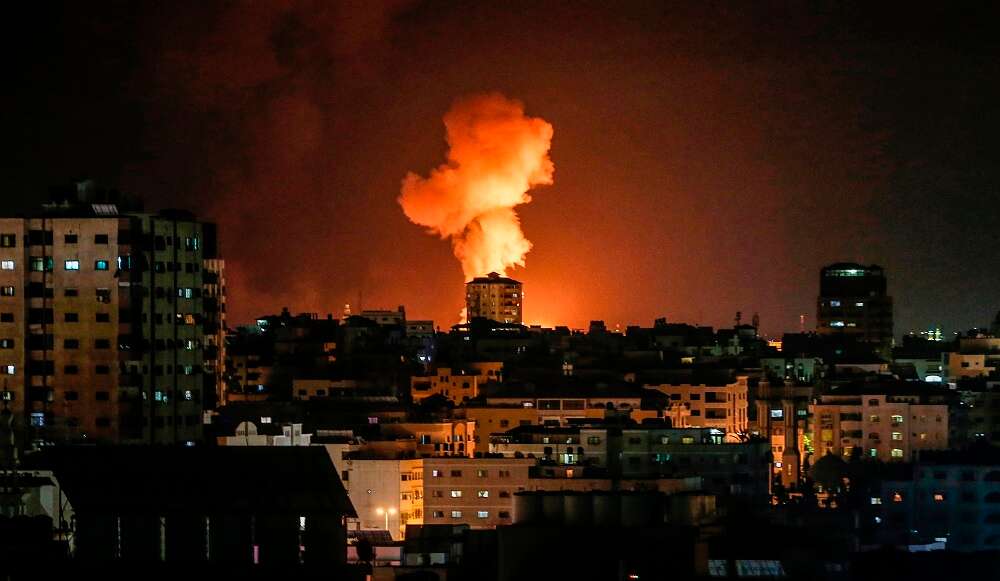
Q: Will they be part of a future Palestinian entity?
"According to the "deal of the century," for them to be part of a future Palestinian entity, by any name, Abu Mazen [Palestinian Authority President Mahmoud Abbas] will first have to disarm Hamas and demilitarize Gaza. We certainly won't oppose that.
"The Central Bureau of Statistics recently issued its report and the most peaceful decade [for Israel], the one with the fewest casualties has been the decade during which I have been the prime minister. That's not a coincidence – that's the result of careful policy, which is both responsible and resolute. You exercise force, but avoid futile wars."
Man of the people
Q: There are many petitions - by businesspeople, academics, IDF officers - urging the public not to vote for you.
"So what? There are plenty of people who support me, but they don't have such access to the media, which is grossly biased. I have no feelings of inferiority in this regard. I don't bother with this type of micropsychology. Just let it go."
Netanyahu, it must be said, has no feelings of inferiority whatsoever. He is confident in his abilities, proud of his achievements, and when he talks about state affairs, he sometimes seems to read carefully crafted messages from an amorphous teleprompter in his head.
He is neither humble nor modest and shadowing him to events, you soon realize that he really is as eloquent as he sounds on TV. It was as we were arriving at a rally in the northern town of Migdal Haemek, when I developed a theory, which I have a hunch has something to it: Netanyahu distinguishes between media people and ordinary people. And I don't think he likes the former too much.
There were about 200 people in the rally. Foreign Minister Israel Katz and Culture and Sports Minister Miri Regev were seated in the first row. Netanyahu engaged with those on stage, smiled, jabbed Ashkenazi and Gantz, talked about V15-turned Darkenu, and explained the Fifth Dimension affair, which centers around a failed company Gantz headed prior to entering politics, to the audience.
The atmosphere was familial and natural. It seems that, unlike with the media, Netanyahu has no issues in his interactions with the public. They love him with the familiarity of a long marriage.
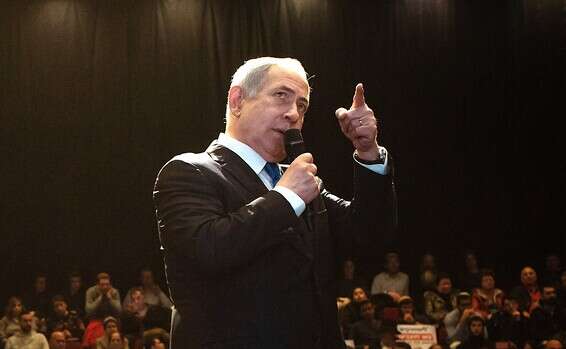
When the prime minister finished talking and engaging with members of the audience, the motorcade quickly geared up to head to the next destination. Netanyahu alternated giving interviews with professional conversations, and it is clear he would have preferred it had the rally been bigger. But between the tensions with Gaza and coronavirus alerts disruption the schedule, "and given the short notice in pulling everything together – it was quite the turnout," he noted.
Q: Do you like these events?
"Yes."
Q: Have you always loved them?
"No. I didn't speak in front of an audience until I was 23."
Q: Under what circumstances?
"When I was an Israeli student at MIT, I returned to Israel for the [1973] Yom Kippur War. When I went back to my studies after the war, I saw on the steps booths manned by Arab students demonstrating against Israel, and a small booth manned by Israeli students next to them. So I approached them. There was a guy there, [later-Likud MK] Uzi Landau – he hasn't changed much since then, by the way – and they recruited me.
"I was sent to Hull, Massachusetts, whose Jewish residents had all left, excluding about 10 of them, and they would meet in a little synagogue every Saturday," Netanyahu recalled.
"I prepared, I had neat pages. I got there and I found 10 Jews – the youngest of them was 82 – sitting and having breakfast on Saturday, and I see them talking: 'Sam, pass me the potatoes,' 'pass me the eggs.' And I was trying to get their attention and I couldn't. Then I cleared my throat and one of them said, 'Oh, this is the guy they sent from Boston. Let the kid speak.'
"That was the hardest experience I ever had addressing an audience. Not in the Knesset, not in the UN – nowhere was it as difficult to get the attention of these 10 elderly Jews than in Hull. Since then, as they say, I've gained some experience. And I like it. I like having contact with the public – the warmth, the wisdom, the wit. They always get right to the heart of the matter."
'Justice will prevail'
Netanyahu is the first incumbent Israeli prime minister to be indicted. He faces corruption charges in three separate cases and his trial is set to begin on March 17.
Touching on his legal troubles, the prime minister asserted his innocence and said he is not wary of the legal proceedings ahead.
Q: You say things in these meetings that you don't say in interviews, such as on the police investigations.
"Obviously. I was in Beersheba and I said, enough. It's time to tell the truth. The hypocrisy and injustice are outrageous. It's almost unimaginable. Five senior officials in Blue and White are embroiled in cases – serious cases – that have never been investigated.
"The question, of course, is why this is happening. There was overeagerness [by the police] to reveal the allegation against me during an election campaign, because 'the public has to know.' Then, on the historic day that I stand next to President Trump at the White House, to file an indictment an hour later."
Q: Were you angry about the timing?
"No, no, I wasn't angry. Naturally, this isn't something I welcomed, but this will all blow over as if it never happened."
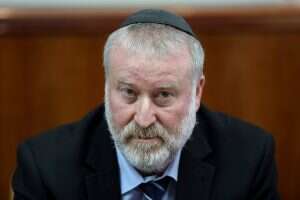
Q: Are you concerned about standing trial?
"I'm not concerned about anything. Truth and justice are on my side and the truth will come out," he asserted. "I'm not concerned about a trial because it will be at least a year or two until it actually begins. My abilities – what I can do in one hour others can't do in a year or at all. My pace is quite different than that of MK Gantz."
A short review of Israel's political history shows that every prime minister since 1996 has come under investigation.
But asked if, given the chance to go back and change things he would pursue a different course of action, perhaps pass the so-called French law – legislation that would bar the police from investigating corruption suspicions against an incumbent prime minister – Netanyahu says he prefers focusing on the future, not the past.
"I don't live in what Americans call 'could have, would have, should have.' I don't live in the past excluding than in one sense: I learn the lessons of Israel's past and history. But I don't constantly rewind in life. I look ahead."
Q: Do you miss normalcy?
"I had the best year of my life with my wife and my son when I lost the election for the first time [in 1999]. It was wonderful. We traveled around the world, it was just wonderful. But I'm not doing this job for the pleasures of power; not for the 18-hour days and, of course, not because of the terrible treatment my wife and family endure. I do it with a deep sense of vocation mission and faith."
Q: Have you always had a sense of vocation?
"Yes. We grew up with it at home, my brothers and I, we got it from my father and mother."
Q: Do you really think that if somebody else serves as prime minister, something would go wrong? Because if it's just you – it's a scary thought.
"There are good and talented people, but first we have to set the stage for action and the ability to act. I have a great ability to influence American public opinion. For example, with respect to applying sovereignty. "
Q: Is that something that can also happen with an American president like Bernie Sanders?
"Probably not, no. But this is the opportunity that exists at this time. I don't know who the Democratic candidate will be, but this is an opportunity that exists today; it exists in the coming year. This is why I want to seize this opportunity, which in many ways I brought about. Naturally, we had nothing to do with President Trump being elected, we didn't interfere in the [US] elections in any way, and I would have been equally active vis-à-vis [then-Democratic presidential candidate] Hillary Clinton.
"But President Trump is an old friend of mine, dating back to when I was the Israeli ambassador to the UN," Netanyahu noted.
Q: How did you meet?
"When we met, he was a very well-known and successful businessman in Manhattan, and since then we met several times. During my first term [as PM] I traveled to the US and visited Wall Street to present my economic plan. All of America's key economic leaders were there, and Donald Trump was in the crowd."
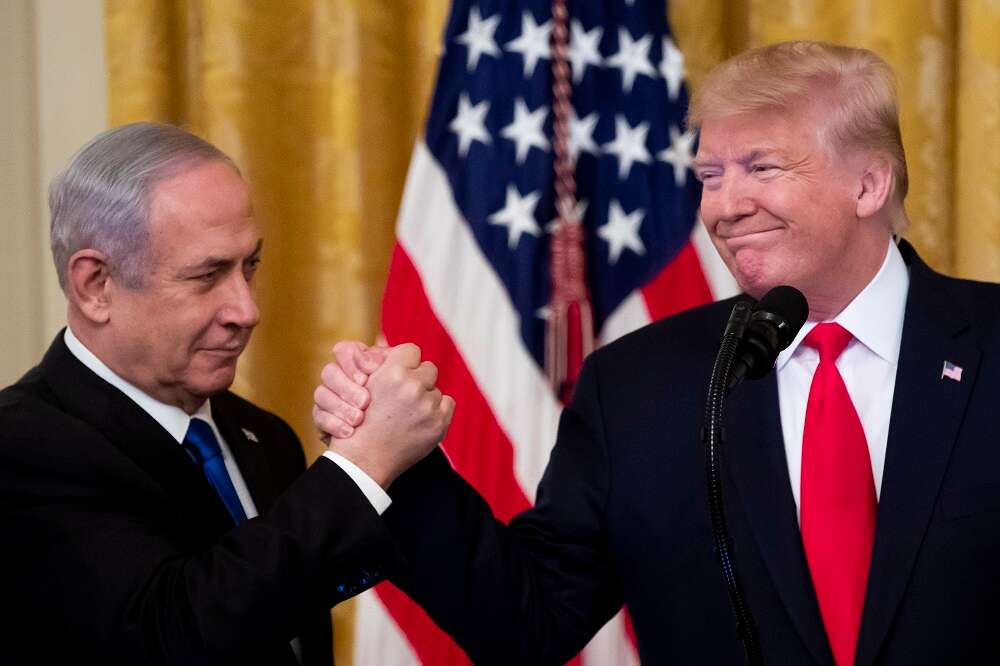
Q: Are there moments in your day when you can just do nothing? There's a book in the car – it looks serious, and in English.
"You're talking about the book about Gen. [Joseph Warren] Stilwell. He was an American diplomat who paved the way to US-China relations. I read a lot about China. I think it's going to be a major factor in our lives," Netanyahu said with a smile, adding, "As you can see, it already is."
Q: Are there things you enjoy doing outside the mission of your office?
"Of course. First and foremost, I love reading, regardless of the mission at hand. I read a lot. History books and books about economics."
Q: Under Trump's Middle East peace plan, what is required to apply Israeli sovereignty over Judea and Samaria?
"Completing the mapping process – and me being elected," he said.
Q: Is the US on board with that? After the ceremony at the White House, they seemed less warm to the idea.
"We're in agreement on this, of course. They want to complete the entire mapping process and apply sovereignty at once, and then they will immediately recognize our sovereignty. The mapping process is expected to take a month or two of considerable effort. Another thing is a mutual defense pact."
Q: What are the practical implications of such a defense treaty?
"It does not restrict our operational freedom," the prime minister stressed, "but in the event of an existential threat to the State of Israel – the US will stand by its side. This doesn't mean we'll be sending our troops to Afghanistan."
Q: Is Israel facing an existential threat?
"Let's just say that if Iran were to obtain nuclear weapons, it would be a clear and present existential threat. That's why I spare no effort – sometimes standing up to the whole world alone – to prevent Iran from having nuclear weapons.
"This is not empty rhetoric, it's backed up by the actions we have taken, be it in the diplomatic arena with regards to sanctions, or with special operations, such as the Mossad's operation to extract the secret nuclear archive from the heart of Tehran. I took those documents to President Trump and after learning them, he said, "That's it. We're out. We're pulling out of the [nuclear] deal."
Creating a defense pact with the United States, Netanyahu explained, "Will anchor the special relationship between Israel and the United States. Every country needs alliances. Superpowers need alliances, let alone a country like Israel. Nevertheless, I have also developed the concept by which we must be able to defend ourselves. I pursue alliances with many countries, but we have to keep in mind that at the end of the day, no one will defend the Jews if they do not defend themselves."
Arguing over TV shows
Q: Who do you turn to for advice? Whose opinion do you value?
"There are a few people. They value their privacy."
Q: They are not from the political arena?
"No."
Q: Is there a political rival that you, dare I say, like?
"Over the past few years, I've come to like Haim Ramon very much," Netanyahu said.
Ramon was a longtime parliamentarian with the Labor and later Kadima parties and a close adviser of late Prime Minister Ariel Sharon. He exited politics in 2006 after he was convicted of indecent assault. The court did not find moral turpitude in his actions and he returned to then-PM Ehud Olmert's government in In mid-2009, Ramon announced his retirement from politics in favor of the private sector.
Ramon, the prime minister said, "Is independent and he speaks his mind, although I don't agree with everything he says. When I was the only one in Likud to vote for the direct election [of the prime minister] – I went against my party – he sent me a note saying, 'Bibi, you're the only man in the Knesset.' Today, in the age of political correctness, I think he probably would have phrased that differently."
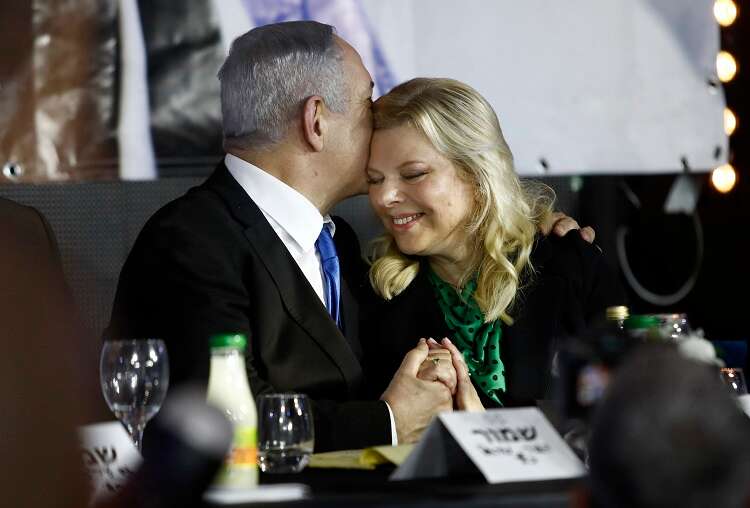
Q: Is there anyone you argue with but whose opinion you value?
"Of course."
Q: They, too, value their privacy?
"Of course. I also have advisers at home who I don't call consultants. They are my family, the people I hold most dear. Sara is a wonderful woman and she has been horribly wronged."
Q: Do you have family habits? Something you watch together on TV?
"We argue about that. Late at night – midnight, 1 a.m. – we argue about what to watch as we fall asleep. My wife Sara loves an Australian show, MKR."
Q: My Kitchen Rules?
"Yes, yes. I love Nat Geo Wild [one of the National Geographic channels carried in Israel]. She's not a fan of animal shows and I'm not into MKR. So these are compromises you make in marital life and we usually agree on a third option. It used to be the History Channel before everything [on] was about antiquing."
Q: Does anything make you laugh?
"Sure, many things."


